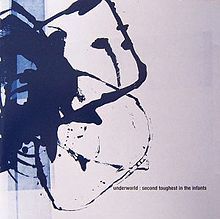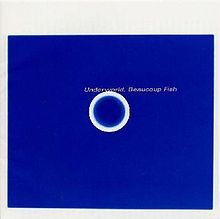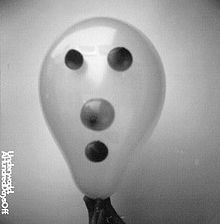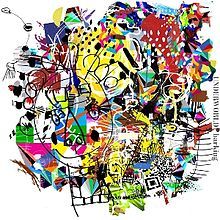Underworld + tomato art design collective
tomato is an art design collective founded in 1991 in London by John Warwicker, Steve Baker, Dirk Van Dooren, Karl Hyde (of Underworld), Rick Smith (of Underworld), Simon Taylor, and Graham Wood. Tomato's work includes television and print advertising, corporate identity, art installations, clothing, and of course the design for Underworld's various channels of output. In its existence, tomato has built an international reputation for working across different media, creating designs for all manner of clients such as Reebok, Adidas and Levi's; and identity for museums and cultural centers.
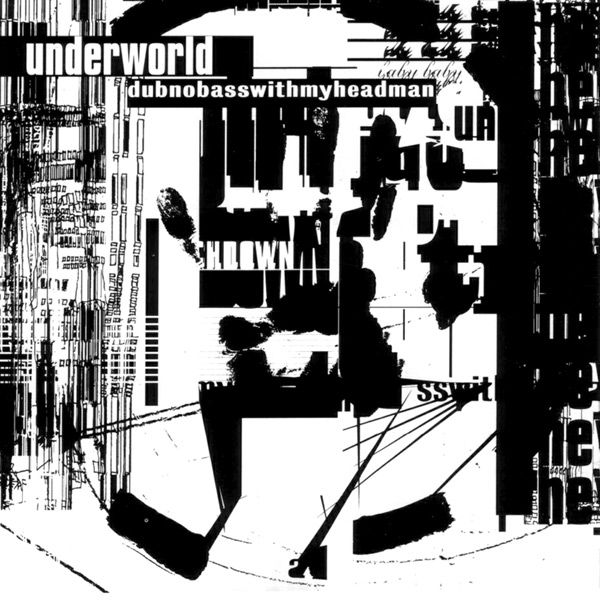 Underworld - Dubnobasswithmyheadman (1994)
Underworld - Dubnobasswithmyheadman (1994)
Tomato designed the artwork for Dubnobasswithmyheadman. It features black and white type that has been "multiplied, smeared, and overlaid" so much that it is nearly unreadable, alongside a "bold symbol consisting of a fractured handprint inside a broken circle".
According to the authors of The Greatest Album Covers of All Time, the cover "set a new standard of presentation for subsequent Dance albums". In Graphic Design: A New History, Stephen Eskilson cites the cover as a notable example of the "expressive, chaotic graphics" that developed in the 1990s, a design style he calls "grunge". Paul Zelevansky of the journal Substance says that "the packaging … replays the visual poetry of the 1960s and '70s and fast forwards to the alchemical transformations of computer graphics packages.
další spolupráce Underworld a tomato:
